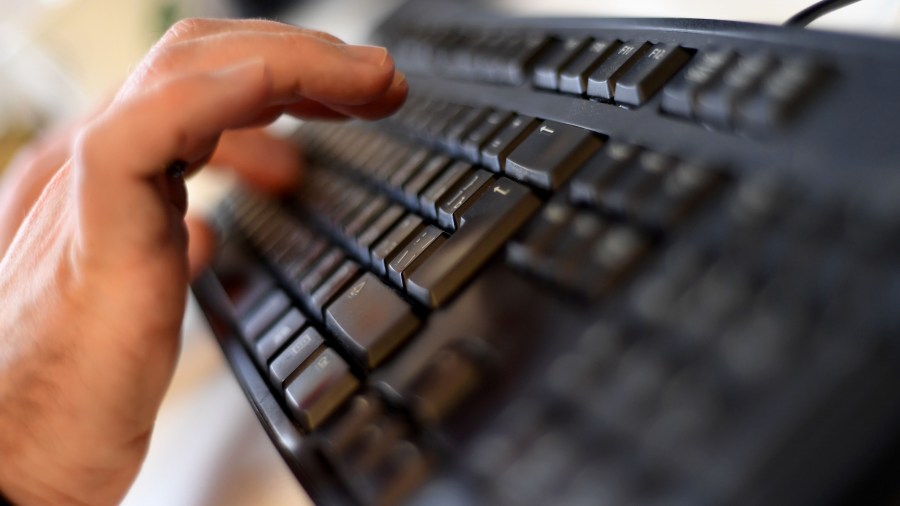COVID-19 is pushing notaries into the digital age

It’s been possible to create wills online for quite some time, but the thing is that after you create a will, you probably have to get it notarized — when a government official, a notary, verifies your identity and the document you created. And that’s usually an in-person transaction. In recent years, a lot of states have made laws to allow digital notarization. But the COVID-19 outbreak has pushed more states to do the same as people try and make wills online.
One of those people is Megan Bowen. About six weeks ago, she was home in Reno, Nevada, when she started to feel sick.
“I started to get a fever and a headache and shortness of breath, and thought, ‘Oh, no. What if I have this?’” she said.
She’s 45 years old, with two teenagers. She’s divorced, and she’d just never gotten around to creating a will or medical directive.
“It was enough to make me go, ‘Wow. I’m not being responsible for my kids’ future. I need to clean this up,’” she said.
Bowen called Nicole Harvey, an attorney in Reno who specializes in estate planning. Nevada had a stay-at-home order in place, so Harvey’s office was closed.
“For the first time in my practice, we’re doing electronic wills, which entails a remote notary,” Harvey said.
Nevada is one of the 23 states that have permanent online notarization laws in place. Notaries there use an online platform to validate a client’s identity by comparing their face on video chat to their photo ID and asking a series of questions like you’d see in a credit check.
“One question might be to say: Here are five addresses. Which one of these were you associated with in 1968?” said Bill Anderson, vice president of government affairs at the National Notary Association, a trade group.
Then, the lawyer, the clients and the notary all meet on video. The client electronically signs the documents; everything’s recorded. The online notary platforms say that it’s just as secure as in-person transactions.
That’s the process in 23 states. But others are rushing out solutions.
“Many of the state executive orders put in place temporary procedures for being able to notarize these documents using video-conference-type solutions, like Zoom,” Anderson said.
Another 23 states now let notaries do their jobs using a combination of video and document sharing. Anderson said these emergency versions are a little less secure, but it’s something. The Senate Judiciary Committee is also considering a bill that would allow it in all states.
One downside: Remote notarization costs more because of platform and extra licensing fees. The National Notary Association says the national average is $25 to get a document notarized online. In-person notarization tops out at $15.
But creating and notarizing a will online can make that difficult task a lot less intimidating. Bowen said she pictured long meetings, “collecting lots of pieces of paper and reviewing things over and over again. And it was so much simpler than that.”
And Bowen said she’s feeling fine now and hopefully won’t need that will anytime soon.
Related links: More insight from Molly Wood
A CNBC story from March gave some numbers on the increase in online will making. Back then, law firms reported they were seeing 50% to 143% increases, in one case, in the number of people making wills online. One imagines those numbers may have increased even more since then.
Also watching
It is not shocking to hear that Uber’s proposed takeover of Grubhub has not had the cheeriest reception. It turns out that antitrust regulators are still paying attention during the pandemic. The congressman who chairs the House antitrust subcommittee on tech specifically told the Financial Times that the takeover attempt “marks a new low in pandemic profiteering.” The story also quotes an analytics firm that said the takeover would push Uber’s meal delivery market share in New York City from about 17% to more like 80%.
Restaurants and their lobbying groups have already been complaining loudly that middleman delivery services like Grubhub take too big a percentage from restaurants, especially at a time when many of those businesses are surviving only on delivery and struggling to stay afloat.
The future of this podcast starts with you.
Every day, the “Marketplace Tech” team demystifies the digital economy with stories that explore more than just Big Tech. We’re committed to covering topics that matter to you and the world around us, diving deep into how technology intersects with climate change, inequity, and disinformation.
As part of a nonprofit newsroom, we’re counting on listeners like you to keep this public service paywall-free and available to all.
Support “Marketplace Tech” in any amount today and become a partner in our mission.


















